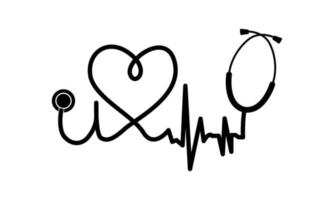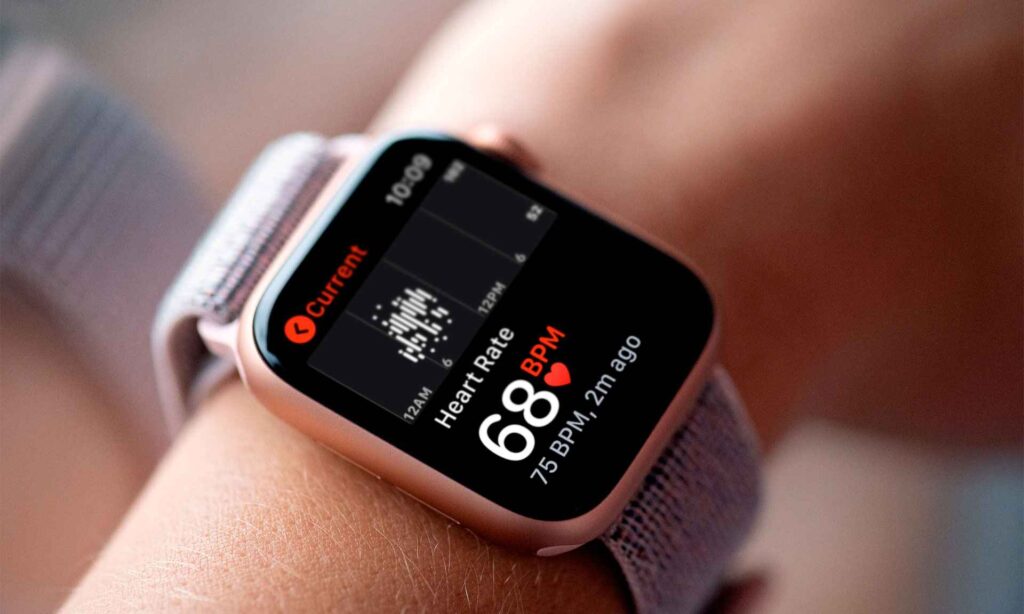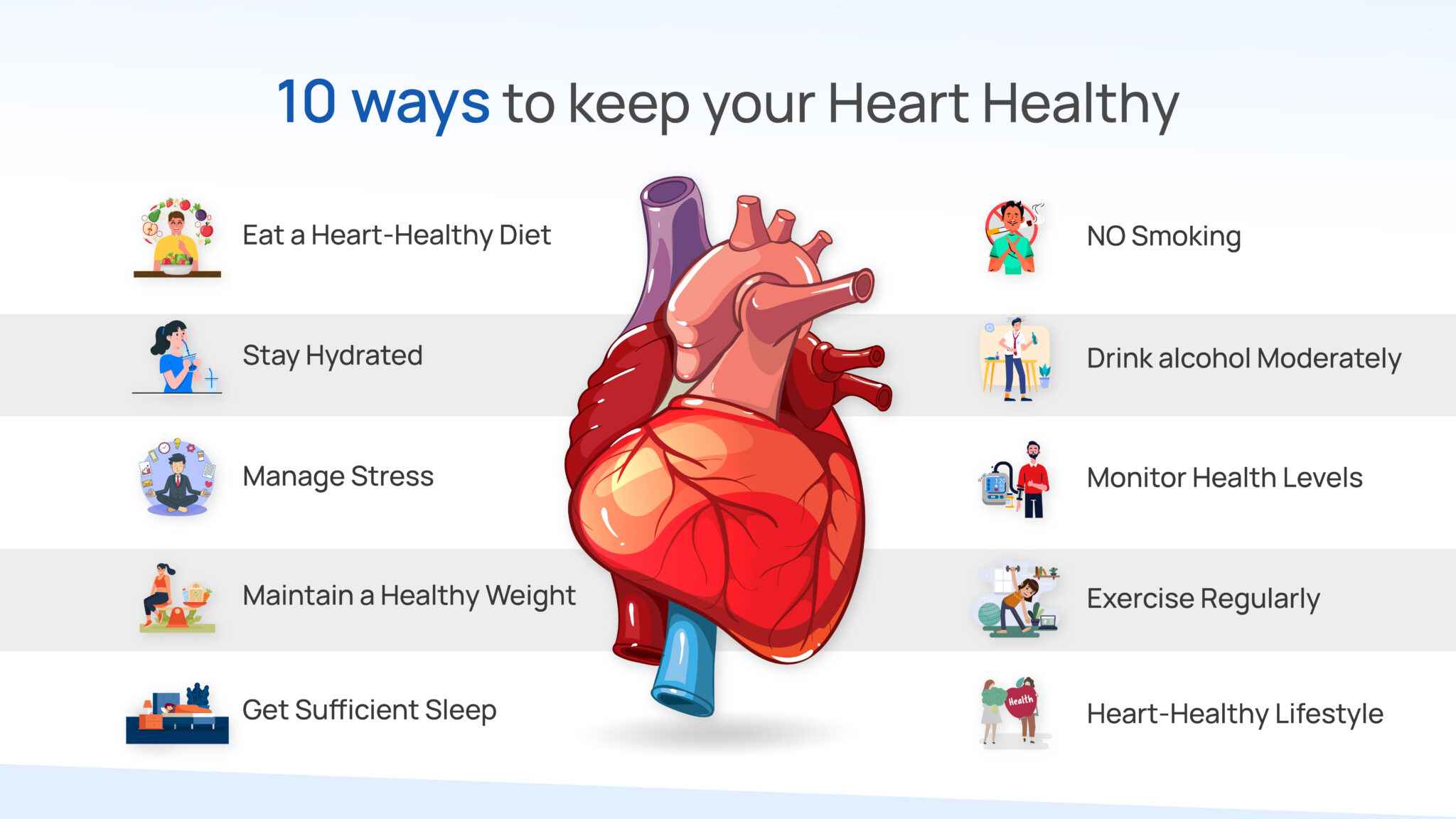Did you know that heart disease is the leading cause of death worldwide, claiming nearly 18 million lives each year, according to the World Health Organization (WHO)? The good news is that learning how to improve heart health through a healthy lifestyle for the heart can significantly lower this risk. Small, consistent steps can help you prevent heart disease naturally while enhancing your overall well-being. Overstimulated Kids: How Movement Helps Improve Focus
In this article, you will uncover proven strategies, practical tips, and expert advice to maintain a strong and healthy heart. From managing stress to adopting heart-friendly habits, this guide is your pathway to long-term cardiovascular health.
Understanding Heart Health
What Is Heart Health?
Heart health is all about keeping your cardiovascular system—the heart and blood vessels—functioning efficiently. It ensures proper blood circulation, delivering oxygen and nutrients to every part of your body while removing waste products.

Why Is Cardiovascular Fitness Important?
- Cardiovascular fitness enhances your body’s endurance and overall well-being.
- A strong heart reduces the risk of heart attacks, strokes, and other chronic conditions.
- According to the WHO, nearly one-third of global deaths are caused by cardiovascular diseases—most of which are preventable.
Daily Habits for a Healthy Heart
Adopting simple daily habits can make a big difference:

- Stay Active: Regular exercise strengthens the heart and lowers blood pressure.
- Eat Smart: Include heart-friendly foods like whole grains, leafy greens, and omega-3-rich fish.
- Manage Stress: Relaxation techniques like yoga can help control high blood pressure.
The Connection Between Heart Health and Mental Well-Being
Mental health plays a crucial role in cardiovascular health. Chronic stress, anxiety, and depression can increase the risk of heart disease by raising cortisol levels and blood pressure. Addressing mental health is key to heart disease prevention.
(Reference: WHO – Cardiovascular Disease Overview)
Expert Insights: What Doctors Recommend
Regular Medical Check-Ups
Routine medical screenings are a cornerstone of heart disease prevention. Dr. John Smith, a leading cardiologist, explains, “Regular check-ups help detect heart disease early, enabling timely intervention that can reduce risks by up to 80%.” Key tests include:
- Blood Pressure Monitoring: High blood pressure often has no symptoms but is a major risk factor for heart disease.
- Cholesterol Testing: Keeping LDL (bad cholesterol) levels low is vital for a healthy heart.
- EKG Screenings: These detect irregular heart rhythms or signs of heart damage.
The Role of Exercise for Heart Health
Doctors emphasize that regular physical activity is critical to maintaining cardiovascular health. Aerobic exercises like walking, swimming, or cycling help:

- Strengthen the heart muscle.
- Improve circulation.
- Lower blood pressure naturally.
Common Early Warning Signs
Being aware of early symptoms can save lives. Common signs include:
- Chest pain or discomfort.
- Shortness of breath during routine activities.
- Persistent fatigue or dizziness.
Exercise and Balance Training at Home
Regular exercise is a cornerstone of heart health, and incorporating balance-focused activities can add additional benefits. Using equipment like a Giboard not only improves balance and core strength but also enhances circulation and cardiovascular fitness. These fun, low-impact exercises are easy to do at home and can help lower stress levels, a key factor in heart disease prevention.

Interested in trying a Giboard? Click here to purchase a Giboard and take the first step toward better balance and heart health.
Ignoring these signs can lead to more severe complications, making early detection crucial.
Omega-3 and Cholesterol Control
Incorporating omega-3-rich foods like salmon, walnuts, and flaxseeds into your diet can lower bad cholesterol levels and reduce inflammation, further protecting your heart.
(Reference: American Heart Association – Heart Health Basics)
Daily Habits to Boost Heart Health
Healthy Eating: Fuel Your Heart
A heart-healthy diet is one of the most effective ways to protect your cardiovascular system. Incorporate these superfoods:
- Omega-3-Rich Foods: Salmon, mackerel, and chia seeds are excellent for reducing inflammation and improving heart function.
- Leafy Greens: Spinach, kale, and broccoli are packed with antioxidants that promote vascular health.
- Whole Grains: Oats, quinoa, and barley help lower cholesterol and maintain healthy blood pressure levels.
(Reference: Journal of Nutrition – Omega-3 and Heart Health)
Exercise: Strengthen Your Heart
Physical activity is a game-changer for heart health. Focus on exercises that improve cardiovascular fitness:
- Aerobic Exercises: Brisk walking, jogging, and swimming enhance circulation and endurance.
- Strength Training: Lifting weights or doing resistance exercises supports overall heart function.
Real-Life Example: Jane, a 45-year-old teacher, transformed her heart health with just 30 minutes of walking daily. After three months, she reported better energy levels and normalized blood pressure.
(Reference: Mayo Clinic – Benefits of Physical Activity)
Stress Management: Keep Calm for Your Heart
Chronic stress can take a toll on your cardiovascular system. Incorporate these simple stress-relief techniques:
- Meditation: Spend 10 minutes daily focusing on deep breathing.
- Yoga: Combine stretching and mindfulness to reduce cortisol levels.
- Nature Walks: Spending time outdoors can significantly lower stress hormones.
(Reference: Mayo Clinic – Stress and Heart Health)
By integrating these habits into your routine, you can significantly improve your heart health and overall quality of life.
Lifestyle Changes to Prevent Heart Disease
Quit Smoking and Limit Alcohol
- Quit Smoking: Smoking damages blood vessels and increases heart disease risk. According to the CDC, quitting can reduce your risk of a heart attack by 50% within a year.
- Moderate Alcohol Intake: Drinking too much alcohol raises blood pressure. Stick to moderate consumption—one drink per day for women and two for men.
Sleep and Cardiovascular Health
Quality sleep is essential for a healthy heart. Studies show that individuals who get 7-8 hours of restful sleep per night have a lower risk of heart disease. Poor sleep can lead to high blood pressure, weight gain, and stress—all risk factors for heart problems.

Monitor Cholesterol and Blood Pressure
- Cholesterol Management: Include foods rich in fiber like oats and beans to help reduce bad cholesterol levels.
- Blood Pressure Control: Regularly check your blood pressure and maintain a low-sodium diet to prevent hypertension.
- Practical Tip: Use at-home monitoring devices to track your progress easily.
Anti-Inflammatory and Plant-Based Diet
- Anti-Inflammatory Foods: Incorporate turmeric, berries, and green tea into your meals to reduce inflammation.
- Plant-Based Benefits: Studies highlight that plant-based diets lower the risk of heart disease by reducing saturated fats and improving overall cholesterol levels.
(Reference: CDC – Managing Cholesterol and Blood Pressure)
The Role of Science and Technology in Heart Health
Smart Devices for Heart Monitoring
Innovations in heart health are transforming how we monitor and manage cardiovascular wellness. Smart devices like fitness trackers and smartwatches allow users to:
- Track heart rate and activity levels in real time.
- Detect irregular heart rhythms and send alerts.
- Monitor daily steps, supporting the importance of walking for heart strength.
Emerging AI in Diagnostics and Treatments
Artificial intelligence (AI) is revolutionizing heart health by enabling:

- Early detection of heart diseases through advanced imaging tools.
- Personalized treatment plans based on predictive analytics.
- Improved accuracy in diagnosing irregularities, saving lives.
Empowering Individuals
Wearable technology for heart health puts control in your hands. By tracking key health metrics, individuals can:
- Adjust their lifestyle based on real-time data.
- Stay motivated to maintain regular exercise routines.
- Catch potential issues early and seek timely medical care.
(Reference: Harvard Medical School – Innovations in Cardiac Care)
Common Myths About Heart Health
Myth 1: “Heart Disease Only Affects Older People”
Fact: Heart disease can occur at any age, particularly with poor lifestyle choices. High cholesterol, smoking, and lack of exercise are major contributors even in younger populations.
Myth 2: “Slim People Don’t Get Heart Disease”
Fact: While obesity is a risk factor, slim individuals can still develop heart disease due to high cholesterol, high blood pressure, or a sedentary lifestyle.
Myth 3: “Heart Damage Is Irreversible”
Fact: Significant improvements can be made with lifestyle changes and medical treatments. Quitting smoking, adopting a healthy diet, and exercising regularly can help repair heart health.
(Reference: Healthline – Debunking Heart Health Myths)
Exercise and Balance Training at Home
Regular exercise is a cornerstone of heart health, and incorporating balance-focused activities can add additional benefits.
- Why the Giboard? The Giboard is a versatile tool that strengthens core muscles, improves balance, and promotes better circulation.
- How to Use the Giboard: Start with simple balance exercises for a few minutes each day and gradually increase the intensity.
- Who Can Use It? Whether you’re a beginner or an experienced athlete, the Giboard is perfect for all fitness levels.
Ready to elevate your fitness and heart health? Click here to purchase your Giboard now!
Conclusion
Maintain Heart Health with Simple Steps
A healthy heart is the foundation of a vibrant life. Small, consistent efforts like regular exercise, a balanced diet, and managing stress can go a long way to prevent heart disease naturally.
Actionable Tips for a Healthy Heart
- Incorporate heart-friendly foods like leafy greens, fatty fish, and whole grains.
- Exercise regularly, aiming for at least 150 minutes of moderate activity per week.
- Prioritize quality sleep and manage stress through mindfulness or yoga.
Take Action Today
Your journey to better heart health starts now. Schedule a check-up, share these tips with loved ones, and commit to adopting a heart-healthy lifestyle. Your heart deserves the best care.
(References: WHO, Mayo Clinic, American Heart Association, Healthline)
FAQs
1. How can I improve heart health naturally in the UAE?
To improve heart health naturally, adopt a balanced diet with fresh fruits, vegetables, and whole grains, stay active with regular exercise, and manage stress through yoga or meditation.
2. What are the best heart-healthy foods available in the UAE?
In the UAE, you can find heart-healthy foods like salmon, walnuts, olive oil, dates, fresh greens, and whole grains such as oats and quinoa in local supermarkets.
3. How does stress affect heart health, and how can I reduce it?
Stress increases cortisol levels, which can harm your heart over time. Reduce stress by practicing mindfulness, enjoying outdoor activities, or attending yoga sessions.
4. Are smart devices effective for heart monitoring in the UAE?
Yes, smart devices like fitness trackers and smartwatches can monitor your heart rate, activity levels, and detect irregular heart rhythms, helping you stay proactive.
5. What lifestyle changes can help prevent heart disease in the UAE?
Quit smoking, limit sugary and processed foods, stay hydrated, and maintain regular health check-ups to monitor cholesterol and blood pressure levels.
Disclaimer:
This article is for informational purposes only and is not a substitute for professional medical advice, diagnosis, or treatment. Always consult a qualified healthcare provider or doctor regarding any medical conditions or before making significant lifestyle changes related to heart health. The recommendations in this article should complement, not replace, the guidance of your healthcare professional.




